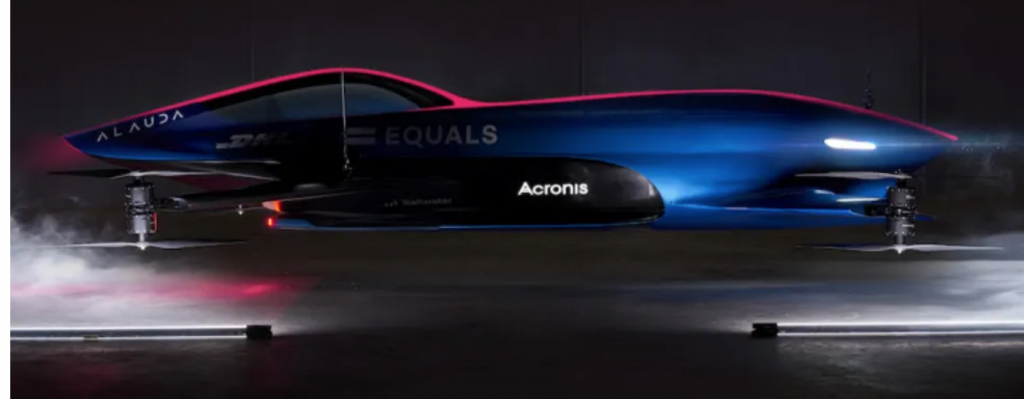
Airspeeder seeks to expand into AV-controlled racing, while giving a boost to autonomous air taxi and car services.
CEO Thinks Flying Drone Racing Will Speed Autonomous Vehicle Regulations
It’s not uncommon to see autonomous vehicles on the highways and by-ways of the West, in places like Phoenix, San Francisco and Seattle. The driverless vehicles move products, take passengers for rides and provide continuous test data. Now autonomous flying drones are in the works for racing.
Steven Johnson writes for thebigthink.com that the next level in autonomous vehicles will introduce a sport that follows the COVID-19 separation guidelines at over 100 mph and several feet apart, and several feet above the ground.
Airspeeder, the world’s newest motorsport, is set to debut its first race in 2021.
The spectators can expect to see:
“…something like a mix between Red Bull’s air racing and the pod-racing scenes from ‘Star Wars: The Phantom Menace’— manned electric cars flying close together in the desert at 120 mph, nose-diving off cliffs, and racing over lakes, all while hopefully avoiding collisions.”
Airspeeder calls its vehicles flying electric cars. They’re actually wheelless “multicopter” drones the size of a car. The carbon-fiber craft uses electric battery power, eight propellers and the tiltable motors that enable pilots to navigate through the course’s pylons at high speeds.
Flying vehicles aren’t new, but they are becoming sophisticated.
In the summer of 2019, a Frenchman in the first human-ridden hoverboard drone covered the 22 miles of the English Channel that separate Great Britan from the French coast. The new versions will be bigger, faster and more maneuverable.
To prevent crashes, Airspeeder is working with the companies Acronis and Teknov8 to develop “high-speed collision avoidance” systems for its Speeders.
“As they compete, Speeders will utilize cutting-edge LIDAR and Machine Vision technology to ensure close but safe racing, with defined and digitally governed no-fly areas surrounding spectators and officials,” Airspeeder wrote in a blog post.
Like any red-blooded lead-footed American male, I would love to fly in one of these races. But I don’t think I would want to ride in the first one, or even the first few dozen races because of the bugs that will need to be worked out.
Along with racing machines, Airspeeder plans to expand into the electric vertical take-off and landing (eVTOL) sector, where companies like Uber, Hyundai, and Airbus are developing air taxis for ridesharing. The autonomous urban aircraft industry could be worth $1.5 trillion by 2040, according to a 2019 report from Morgan Stanley.
Still, many technical and regulatory hurdles remain. Matt Pearson, Airspeeder’s founder and CEO, said the futuristic motorsport will help speed up that process and pave the way for the self-driving car.
No date has been set for the first race. One course will be in California’s Mojave Desert, another near Coober Pedy in South Australia.
read more at bigthink.com







Leave A Comment